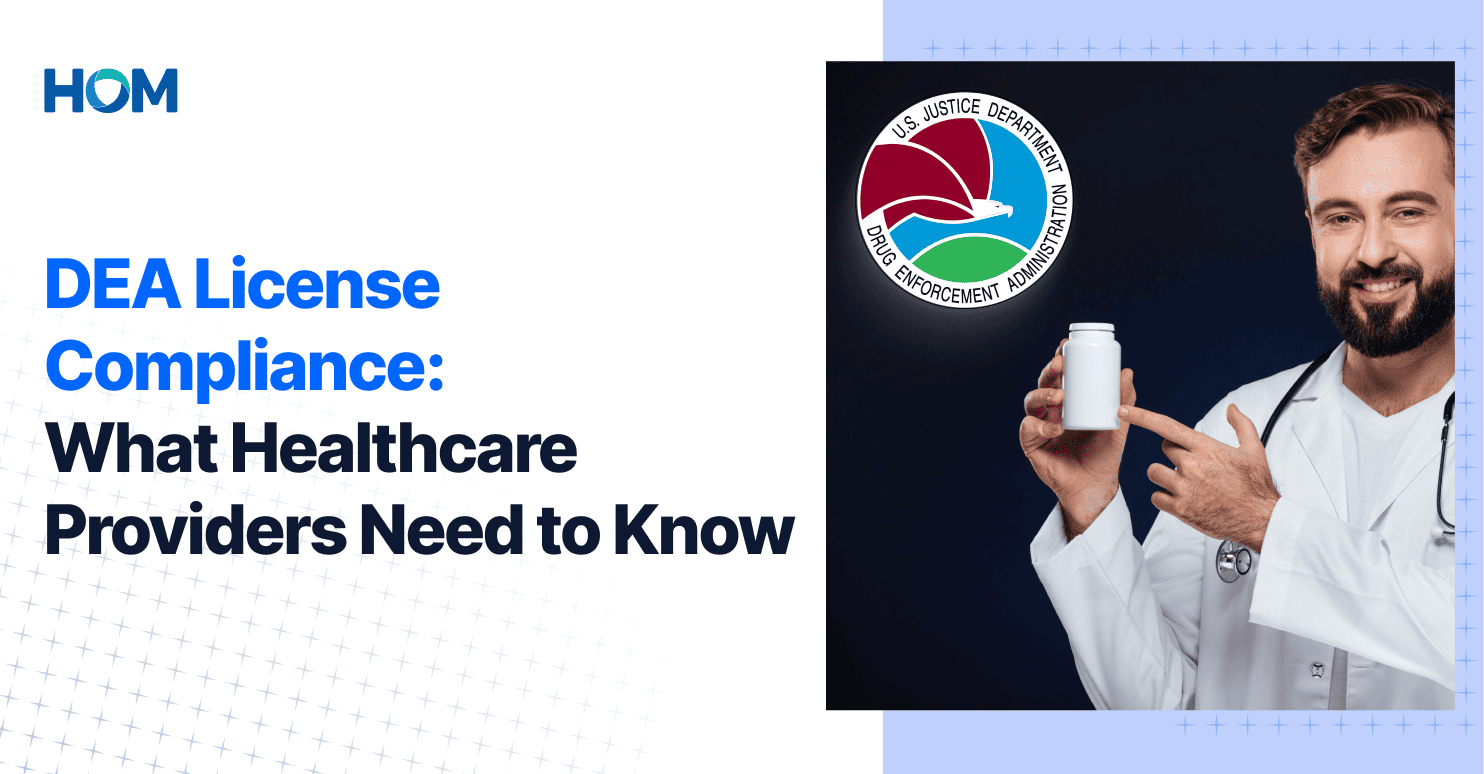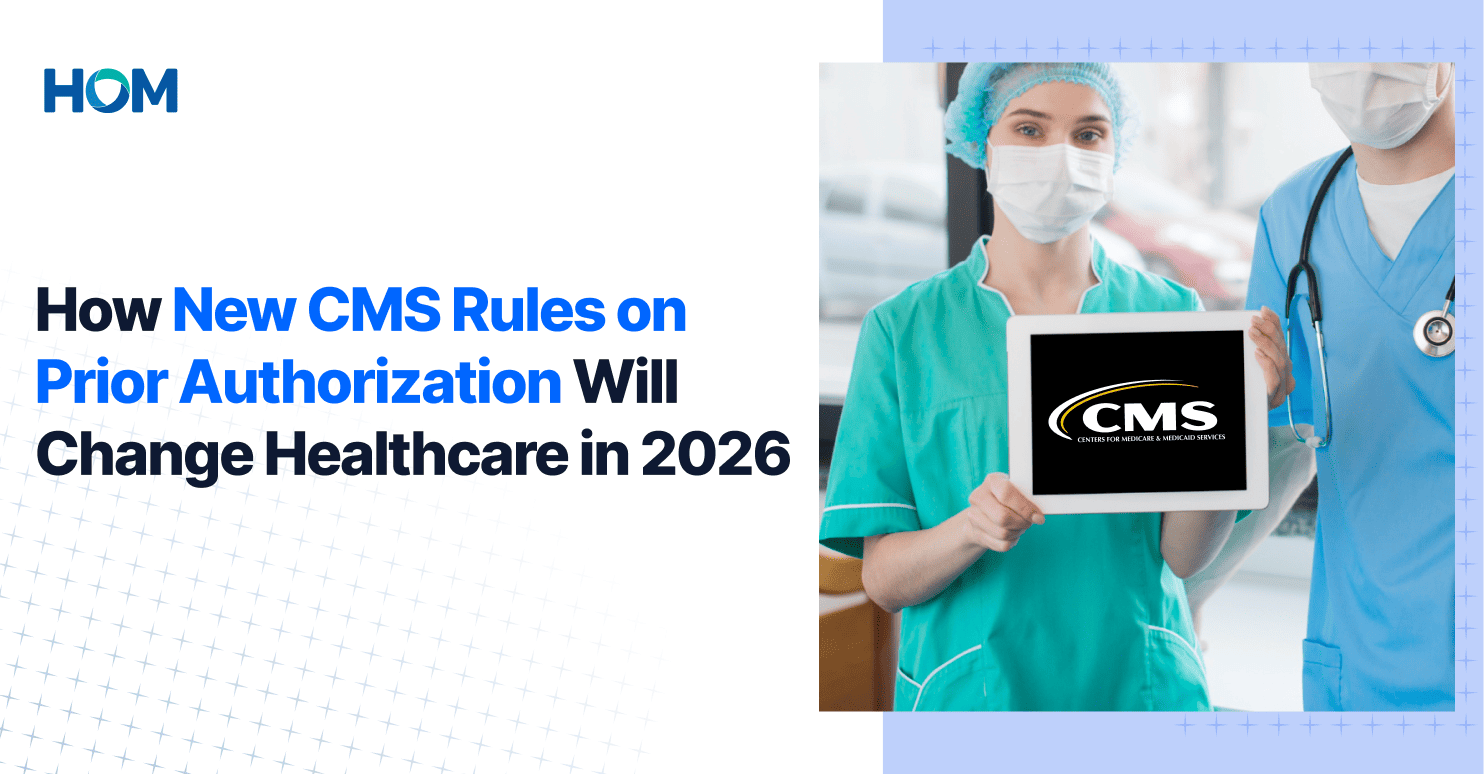
Managing a profitable healthcare business requires juggling great patient care with an ever-expanding list of regulatory obligations. Even the most important chores might go under the radar between payer rules, credentialing difficulties, and operational needs.
Your DEA license is one of those essentials that can’t be overlooked. More than just a formality, it’s a foundation for prescribing authority and a safeguard for your practice’s operational and financial health.
At present, healthcare providers are dealing with an environment where compliance expectations are tightening, audits are increasing, and the margin for administrative error is shrinking. Staying ahead means not just meeting current regulations, but anticipating changes that can affect your authority and revenue streams tomorrow.
This guide breaks down specifics of the DEA license, along with the key information that healthcare providers need to know, from first applications to ongoing renewals.
Why Your DEA License Matters
Behind every controlled substance prescription lies a DEA registration. It is a federally issued number that ties directly to your prescribing authority and payer credentials. Without it, undesirable things can unravel fast: insurance claims may be denied, patient access could be disrupted, and operational headaches might follow.
Your state medical license allows you to practice, but your DEA license ensures you can legally prescribe, dispense, or research controlled substances under federal law.
Controlled substances are classified into five schedules based on their medical use and potential for abuse. Most providers deal with drugs in Schedules II through V—from tightly regulated pain medications to more routine therapeutic treatments.
Now, there’s an important point many overlook: if you store, administer, or dispense controlled substances at multiple practice locations, each site needs its own DEA registration. So, multi-location practices must juggle multiple licenses to stay compliant.
Who Needs a DEA License
Physicians, nurse practitioners, physician assistants, dentists, podiatrists, veterinarians, and pharmacists—anyone authorized to prescribe controlled substances—must secure a DEA license.
But here’s the catch: you can’t even apply for one until you’ve got an active state medical license in the state where you practice. In about half of the U.S., an additional controlled substance permit is required before submitting your DEA application. It’s a step that sometimes trips up first-time applicants, delaying their start.
As of June 27, 2023, there’s another requirement: most clinicians must complete eight hours of training focused on opioid and substance use disorder prevention before applying or renewing. It’s not optional. In fact, skipping it can block your application before it gets out the door.
So, starting early, at least six to eight weeks before you need a prescribing authority, can help sidestep these common hurdles.
Simplifying the DEA License Application Process
The application process might seem overwhelming at first, but it’s manageable once you break it down.
First, select the correct form:
- Form 224 for new individual practitioners
- Form 224a for renewals
- Form 224S for telemedicine-specific registrations
You’ll have to submit your application through the DEA’s Diversion Control Division portal. Be ready to provide your active state license number, National Provider Identifier (NPI), and complete practice details.
The fee for most practitioners is $888 for a three-year term. This is an investment in operational stability. Note that federal employees may qualify for a discount.
Processing the license application usually takes about six to eight weeks, though missing paperwork or regulatory issues can drag things out longer.
Also, a DEA investigator might also reach out to schedule a site visit or interview, especially for first-time applicants or multi-location operations. It’s routine; having your documentation complete and organized will make this step go smoothly.
Missing training certifications, incomplete state permits, or mismatches in your licensing details are some of the most common causes of delays. Starting with a complete file and double-checking everything before submission saves time and frustration later.
For many practices, turning to credentialing experts eases the process. Having a reliable partner to manage paperwork and timelines means fewer administrative headaches, freeing up your time for patient care.
Compliance with DEA License: What Healthcare Providers Should Not Overlook
Getting a license is just the start. Staying compliant is what really protects your practice.
There are strict recordkeeping requirements: providers must document every controlled substance prescription, stay updated with state Prescription Monitoring Programs (PMPs), and report any suspicious activity promptly.
Also, proper physical security for storing controlled substances, even samples, is a federal mandate.
In the event of theft or loss, reporting to the DEA must happen immediately. Therefore, thorough inventory records are a must, and if you use electronic systems, they need to meet specific federal standards for security and access. These include:
- Logical access controls to restrict system access to authorized users only
- Multi-factor authentication (MFA) is required for prescribers and administrators
- Digital signatures for electronic prescriptions
- Detailed audit trails tracking all user activities and transactions
- Security incident reporting to the provider and the DEA within one business day
- Record retention for at least two years, in a secure and tamper-evident manner
- CSOS digital certificates are required for the electronic ordering of Schedule II substances
DEA inspections can happen with little warning, sometimes triggered by prescribing patterns. Having everything organized and staff properly trained can make all the difference.
Remember, failing to meet these requirements doesn’t just risk fines — it could lead to suspension of your license or even criminal charges.
Avoiding Revenue Disruptions: Why Is DEA License Renewal Important?
Your DEA license must be renewed every three years — no exceptions. The DEA sends out renewal notices roughly 60 days before expiration, but if your contact details aren’t up to date, you might never see it.
In case you let your license lapse, you can’t legally prescribe controlled substances, not even during the grace period. What’s worse, expired licenses trigger immediate insurance claim denials, disrupt patient care, and can result in removal from payer networks.
Even after you renew the DEA licence, recredentialing with insurers can take 60 to 90 days, dragging out revenue losses well beyond the initial lapse. Practices that rely on controlled substances, like those in pain management or psychiatry, are hit hardest.
Therefore, timely renewal is the key. Increasingly, providers rely on credentialing partners who offer automated tracking, ensuring deadlines are never missed and compliance is maintained without adding extra burden to your team.
Final Thoughts
Your DEA license underpins your practice’s stability and reputation. Letting it expire, even briefly, can have cascading consequences that are difficult and costly to fix.
The penalties for non-compliance stretch beyond fines. Civil or criminal penalties, including license suspension or revocation, are real risks. Applications can be denied for a host of reasons: falsified information, previous controlled substance convictions, or exclusion from federal healthcare programs.
Appeals are possible, but expensive and time-consuming. Prevention remains the smartest move.
That’s where thoughtful, proactive management becomes invaluable. Staying ahead of renewal deadlines and compliance updates protects your reputation and keeps your practice running at full strength.
At HOM, we understand how critical license management is to the overall health of your operations. Our credentialing services are designed to streamline the entire process — tracking deadlines, navigating regulatory changes, and reducing administrative burdens.
With 99% accuracy in credentialing timelines and 24-36 hour response times for compliance queries, our clients find measurable improvements in both operational efficiency and revenue protection.
With HOM as your partner, you can stay focused on delivering excellent patient care while we take care of the details that keep your practice compliant and revenue-secure.
To learn more, contact us.
Bring a change to your Healthcare Operations
A partnership with HOM gives you an inherent:
Connect with our experts for a quick analysis and possibilities.
















